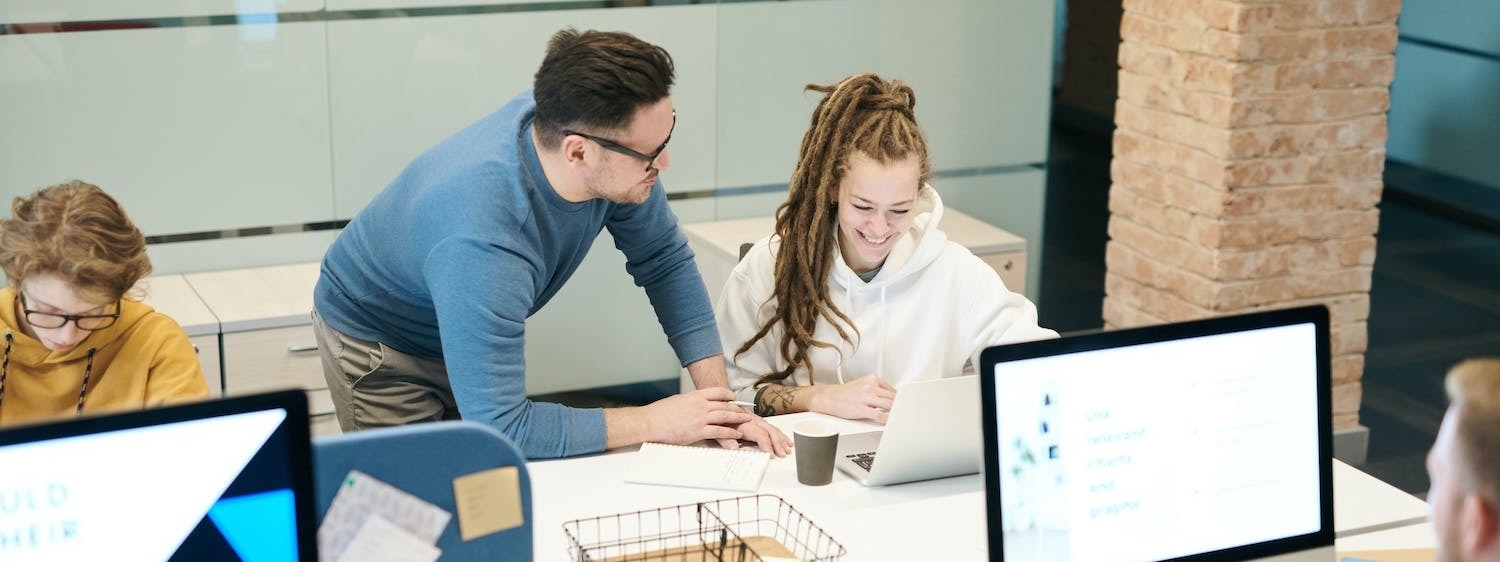How to Improve Employee Wellbeing Across Your Business
Posted on 15th October 2023 at 10:15
Following the COVID-19 pandemic, which accelerated the trend of remote and hybrid working, employee wellbeing is being given more focus than ever before. However, it isn’t all about giving your staff the option to work from home, as the roots of employee wellbeing go much deeper and can cover a wide variety of factors.
Ways to improve employee wellbeing
Here are a few tips for increasing the wellbeing within your workplace:
Provide tailored CPD programmes: When you give team members relevant opportunities to expand their skill sets, they feel more valued and also gain greater confidence in their roles.
Organise activities: From coffee mornings and bake sales in aid of charity to team away days, special events and optional fitness challenges, there are many ways to make your workplace a fun place to be.
Wellbeing leaders: This doesn’t have to be people within your HR department. In fact, it works even better when each department has its own wellbeing leader who takes note of the general mood and comes up with interesting ways to build team morale.
Encourage real breaks: Some employees will cut their breaks short or skip them entirely during busy periods. This should be discouraged, as breaks allow us to give our eyes, bodies and brains a quick breather, which is great for wellbeing and productivity.
How does employee wellbeing benefit staff?
It may sound obvious that employee wellbeing will benefit your employees, but you may be wondering exactly what kind of impact it has. Here are some common examples:
More confidence: When a worker enjoys their role and knows that they can ask for help whenever they need it, they feel more confident in their abilities and tasks.
Easier workloads: Employees tend to work faster when their mental state is positive, which empowers them to complete jobs without feeling overwhelmed.
Better mental health: When workers feel that their mental health and wellbeing are being supported, it creates a more vibrant and enjoyable environment for staff, managers, visitors and work experience students.
How does employee wellbeing benefit a business?
When wellbeing is considered a priority as part of a wider company culture, amazing things can happen. By reducing levels of stress as much as possible, your company will see multiple advantages:
Greater focus: People find it difficult to concentrate when they’re stressed out, which leads to deadlines being missed and errors arising in their work. Supporting employee wellbeing will help to ensure that everyone is focused on the task at hand and jobs are completed on time.
Clearer communication: Employees are more open to detailed discussion when their wellbeing is looked after, which aids everything from planning workflow to getting everyone up to speed on a particular project.
Increased engagement: From new ideas and solving problems to higher levels of productivity and more attentive customer service, people really do perform better when they feel happy in their work.
Less absenteeism: Whether it’s the occasional day off here and there or being signed off for months on end, stress and anxiety are major causes of staff absenteeism. Employees who feel that their wellbeing requirements are recognised, respected and responded usually take less time off sick.
Longer staff retention: The last thing you want is for a member of your team to leave your business because they’re too stressed, especially when this is so easy to prevent. Workplaces that invest in mental health support retain their best people for longer.
Stronger company reputation: People naturally talk to each other about their employers, so this is your opportunity to ensure that all of that chatter is positive. A caring company culture sends out a strong message that your business has values which it strictly adheres to.
Upgrade your home office
We create positive workplace environments that ensure your staff are comfortable, happy and productive. To find out more about how we can design office layouts that perfectly suit your exact requirements and increase workflow, get in touch on 01482 301000 or use our contact form.
Share this post:







